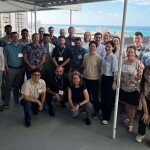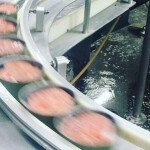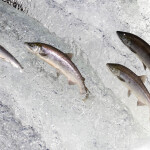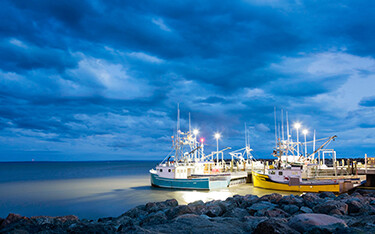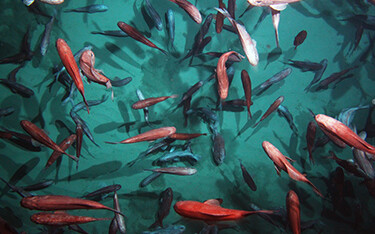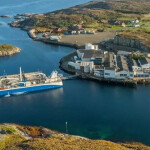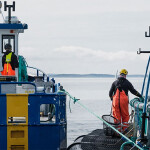Emma Desrochers is a freelance journalist based in Waialua, Hawaii, who writes about fisheries and sustainability. She graduated from Yale University in June 2021 with an undergraduate degree in environmental studies and mechanical engineering. She has contributed to the environmental conservation field through internships located in Ecuador, Thailand, and Hawaii.
Author Archive
The International Seafood Sustainability Foundation (ISSF) released its annual “Status of the Stocks” report in July 2022, finding global tuna catches are increasingly coming from healthy stocks.
Since its last "Status of the Stocks" report in March 2022, the percentage of total commercial tuna catch worldwide harvested from stocks at “healthy” levels of abundance has increased from 80.5 percent to 86.4 percent. ISSF
… Read MoreThe United Nations Development Program (UNDP) has funded a second cohort of 10 ocean innovators with the hop of bringing economic benefits to small-island developing states and least-developed countries.
UNDP’s Ocean Innovation Challenge is part of UNDP’s Ocean Promise to deliver at least 100 ocean innovations by 2030. OIC provides up to USD 250,000 (EUR 250,000) over two years to develop innovative solutions that are
… Read MoreThree of New Zealand’s largest orange roughy fisheries have achieved the Marine Stewardship Council (MSC) standard recertification. These fisheries represent approximately 73 percent of New Zealand’s orange roughy harvests and were the first orange roughy fisheries to be certified as sustainable to the MSC fisheries standard in 2016.
The owners of quota for New Zealand’s deep-water fisheries are represented by The Deepwater
… Read MoreThe red rock lobster fishery in Baja, Mexico has received its third Marine Stewardship Council (MSC) standard recertification since becoming one of the first 10 fisheries in the world to obtain MSC certification in 2004.
The fishery is overseen by the Regional Federation of Cooperative Societies of the Fishing Industry of Baja California (FEDECOOP), which acts as a client and integrates 14 cooperatives together, nine of which are MSC-certified.
… Read MoreCharoen Pokphand Foods PCL (CP Foods) announced progress to reduce use of antibiotics in aquaculture along with other sustainability efforts as part of the Seafood Business for Ocean Stewardship (SeaBOS) initiative. SeaBOS is a group of ten of the largest global seafood companies working towards more sustainable seafood production and improved ocean health.
As part of SeaBOS’s collaboration, several task forces were created to focus
… Read MoreThe Fisheries Transparency Initiative (FiTI) has laid out a case against ranking fisheries transparency efforts in a global fisheries transparency index.
FiTI is a global multi-stakeholder partnership focused on increasing transparency and collaboration in marine fisheries management. It is working with governments of coastal nations around the world to produce country reports that provide a deep dive into the state of the
… Read MoreThe Pacific whiting (hake) mid-water trawl fishery is the first fishery outside of Alaska to achieve Responsible Fisheries Management (RFM) certification. The fishery covers federal waters off the U.S. states of Washington, Oregon, and California.
The Pacific whiting fishery is now eligible to sell products harvested from 10 January, 2022, forward with the RFM eco-label. The RFM certification process was initiatived by the Pacific Whiting
… Read MoreSeafood Business for Ocean Stewardship (SeaBOS) has released its first progress report since its launch in 2016, detailing its efforts to improve the sustainability of the seafood industry.
SeaBOS is a collaboration of 10 of the world’s largest seafood companies across the wild capture, aquaculture, and aquafeed production sectors.
The companies involved in SeaBOS are Maruha Nichiro, Nissui, Thai Union, Mowi, Dongwon Industries,
… Read MoreFive founding members of TUNACONS have achieved Marine Stewardship Council (MSC) certification for yellowfin tuna products caught in the Eastern Pacific Ocean.
The Ecuadorian companies involved in the initiative are Negocios Industriales Real NIRSA S.A., Servigrup, and Eurofish, along with Panamanian firm Pesquera Jadran and U.S.-based Tri Marine. The certification covers 47 vessels between the companies and is the first certification for
… Read MoreThe Global Seafood Alliance (GSA) has published an update of the Responsible Fishing Vessel Standard (RFVS).
The RFVS is part of GSA’s Best Seafood Practices (BSP) certification program, which uses third-party certification to link responsible wild fisheries to certified vessels and processing plants.
The new RFVS Issue 2.0 replaces the previous Issue 1.1 in order to incorporate lessons learned and feedback by industry partners,
… Read More
